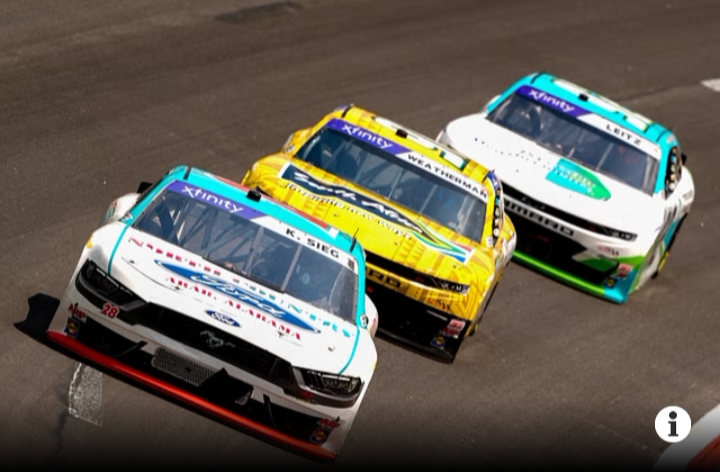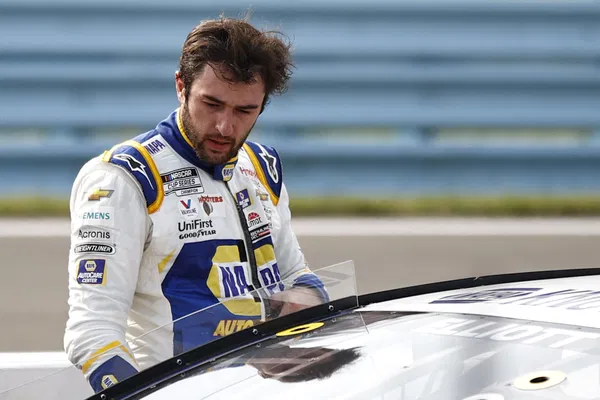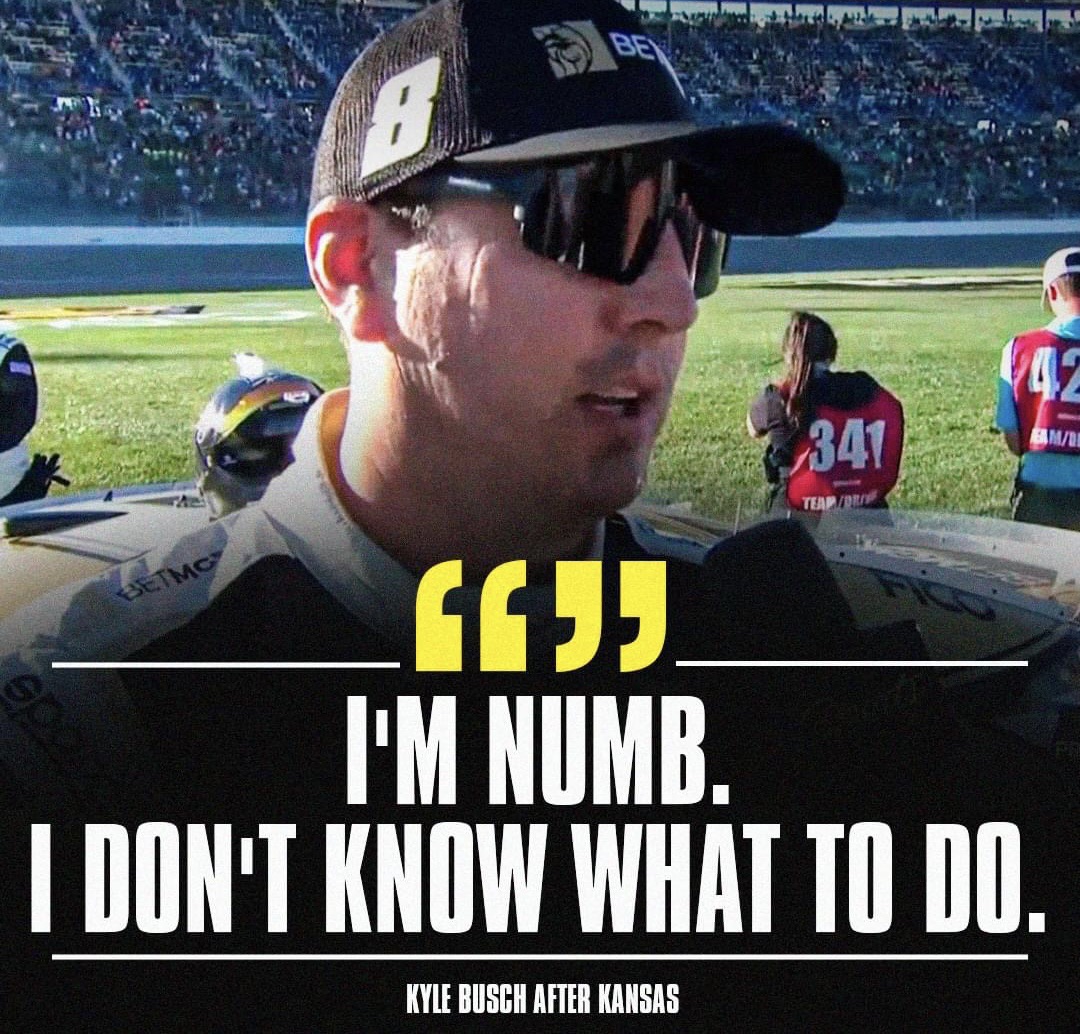NASCAR permits drivers from the Cup Series to race in both the Xfinity and Craftsman Truck Series, and vice versa. However, once the playoffs arrive, the league enforces a rule preventing Cup drivers from participating in the lower-tier series. Interestingly, drivers from these lower series are still allowed to compete in the Cup Series playoffs. This rule, while seemingly controversial to some, is meant to ensure fairness and maintain the integrity of the playoff competition.
The reason behind this regulation is to create a level playing field, particularly during the playoffs. NASCAR’s decision to bar Cup drivers from these events ensures that their dominance doesn’t unfairly affect the outcome of the Xfinity and Truck Series title races. Veteran NASCAR reporter Bob Pockrass sheds light on this topic, offering insight into the league’s reasoning.
Bob Pockrass Clarifies the Ban
When a fan inquired about the rule preventing Cup Series drivers from competing in the Xfinity and Truck playoff races, Pockrass explained that the restriction was implemented to avoid Cup drivers influencing the title race by winning or consistently finishing at the front. This was particularly a concern in the final races of the season when the championship battle intensifies. He pointed out that Cup drivers aren’t allowed to participate in the last eight Xfinity and Truck races, including the regular-season finale and all playoff events. Moreover, Xfinity drivers are also barred from competing in the Truck Series’ championship race.
The logic behind this rule is clear: Cup drivers are often the frontrunners or outright winners in the lower-tier races. By excluding them from the Xfinity and Truck playoffs, NASCAR ensures that these elite drivers don’t skew the results and standings, particularly when it comes to the championship. For example, Cup Series driver Christopher Bell recently won the Xfinity race at Darlington, beating Cole Custer, a prominent contender in the Xfinity series. Similarly, Kyle Busch, another top Cup Series driver, secured a victory in the Craftsman Truck Series this year. These wins, while impressive, highlight why NASCAR enforces the ban during crucial playoff moments. The intention is to allow regular competitors in these series to have a fair shot at the title without having to face Cup Series regulars.
Pockrass emphasized that this concern doesn’t extend to the Cup Series itself, which is why lower-tier drivers are still allowed to compete in the Cup Series playoffs. Drivers like Shane van Gisbergen, who races in the Xfinity Series, are able to enter Cup playoff events like the upcoming race at Watkins Glen without any restrictions. The Cup Series, being the highest level of NASCAR competition, doesn’t face the same risk of being influenced by drivers from the Xfinity or Truck Series. This difference in approach helps maintain the competitive integrity across all levels of NASCAR.
Exceptions to the Rule
Despite the general ban, there are some exceptions. For instance, Cup Series drivers were prohibited from racing in the Xfinity Series event at the Chicago street race, demonstrating that NASCAR is willing to adjust its rules based on unique circumstances. This suggests that while the ban is largely in place to protect the playoffs, NASCAR can modify its regulations as needed for special events.
In addition to these playoff restrictions, NASCAR also has rules that limit Cup Series drivers’ participation in other significant races throughout the season. Cup drivers are banned from taking part in the Xfinity Dash 4 Cash and the Triple Truck Challenge, two marquee events that offer bonus payouts. Additionally, NASCAR restricts drivers with more than three years of Cup experience to just five races per season in both the Xfinity and Truck Series. This rule further limits the impact that seasoned Cup drivers can have on the lower-tier competitions, allowing the regular competitors more opportunities to shine.
Why Cup Drivers Race in Lower Series
One might wonder why Cup drivers would even bother racing in the Xfinity and Craftsman Truck Series in the first place. The answer lies in both practical and promotional reasons. Racing in these series allows Cup drivers to gain valuable track time. Since Xfinity and Truck races often occur a day or two before Cup races, drivers use these events to familiarize themselves with the track conditions ahead of their main event on Sunday. This advantage can be crucial, especially on tracks that are notoriously difficult or when conditions change between practice and race day.
Additionally, the presence of Cup drivers in lower-tier races adds excitement and draws attention to these series. Cup drivers bring star power, attracting fans and sponsors to the Xfinity and Truck races, which helps support the teams and drivers in these divisions. Smaller teams in particular benefit from the increased exposure and fan engagement that comes with having Cup stars compete in their series. This dynamic ensures that cross-series racing won’t disappear anytime soon, even with the restrictions during playoff time.
In conclusion, NASCAR’s decision to ban Cup drivers from participating in the Xfinity and Truck playoffs is a carefully thought-out move designed to protect the competitive integrity of the lower series. While some fans may find the rule frustrating, it ultimately helps ensure that drivers in these series have a fair chance to compete for their respective championships. At the same time, NASCAR’s allowances for drivers to race across series during non-playoff events continue to foster excitement and growth in the sport.




